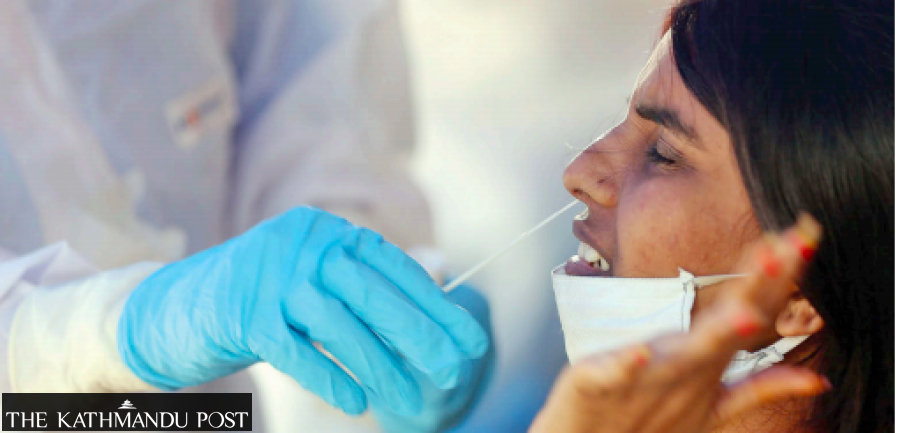Health
Whole genome sequencing plan on swabs of dead and severe Covid patients afoot
Coordination Centre to bring holding centres back into operation, possibly to house people displaced by natural disasters.
Arjun Poudel
As the new cases of coronavirus have been surging alarmingly throughout the country, the Covid-19 Crisis Management Coordination Centre has decided to carry out whole-genome sequencing in swab samples of all people who died after the start of the fourth wave of the pandemic.
Gene sequencing will be also performed on swab samples of all those receiving intensive care and placed on ventilator support, a meeting of the Centre held at the Office of Prime Minister and Council of Ministers decided on Friday.
“The meeting has decided to carry out whole-genome sequencing on swab samples of all deceased and seriously ailing people admitted to the intensive care unit and placed on ventilator support to know the virus variant,” said Shankar Nepal, joint secretary at the Office of the Prime Minister and Council of Ministers, who is also a member of the Covid-19 Crisis Management Coordination Centre (CCMCC).
Whole-genome sequencing is a comprehensive method of analysing the entire DNA sequence of an organism’s genes. Researchers believe that whole-genome sequencing of coronavirus could be instrumental in tracking the severity and properties of the virus.
At least 17 people died and thousands have been infected since the start of the fourth wave of the pandemic from mid-July.
Data provided by the Ministry of Health and Population show that 46 people have been admitted to intensive care units and two people whose health conditions are serious were placed on ventilator support on Saturday.
In the last 24 hours, one died and 660 people tested positive—326 in 1,942 in polymerase chain reaction tests and 334 in 2,740 antigen tests. Active cases stand at 5,641 throughout the country.
Experts believe that the BA.5 variant of Omicron is responsible for the surge in new cases.
Studies, however, showed that along with BA.5, several other new sub variants—BA.5.2. BA.2.75. BA.2.73, BA.2.12.1, BA.2.38 and BF.1—have been detected in the swab samples of infected people.
According to Nepal, the meeting also decided to make face masks, handwashing and sanitiers mandatory at all government offices.
In the meeting, discussions were also held to bring the holding centres back into operation.
Eight holding centres, each of 1,000 beds capacity, have been constructed in the border points to place suspects returning from India.
“A draft working procedure and guidelines to bring holding centres into operation have been sent to the Health Ministry for approval,” said Nepal. “We will send the draft to other concerned ministries and provincial ministries for approval. We have proposed to place other people displaced from natural disasters in the holding centres.”
Despite a surge in new cases of infection, the meeting has not decided to enforce restrictions. Officials from various ministries who attended the meeting agreed to urge all people to use face masks, avoid crowds and follow other safety measures.
Of the 17 people who died since the start of the fourth wave from coronavirus infections, 13 had comorbidities, according to Health Ministry officials.




 18.12°C Kathmandu
18.12°C Kathmandu















